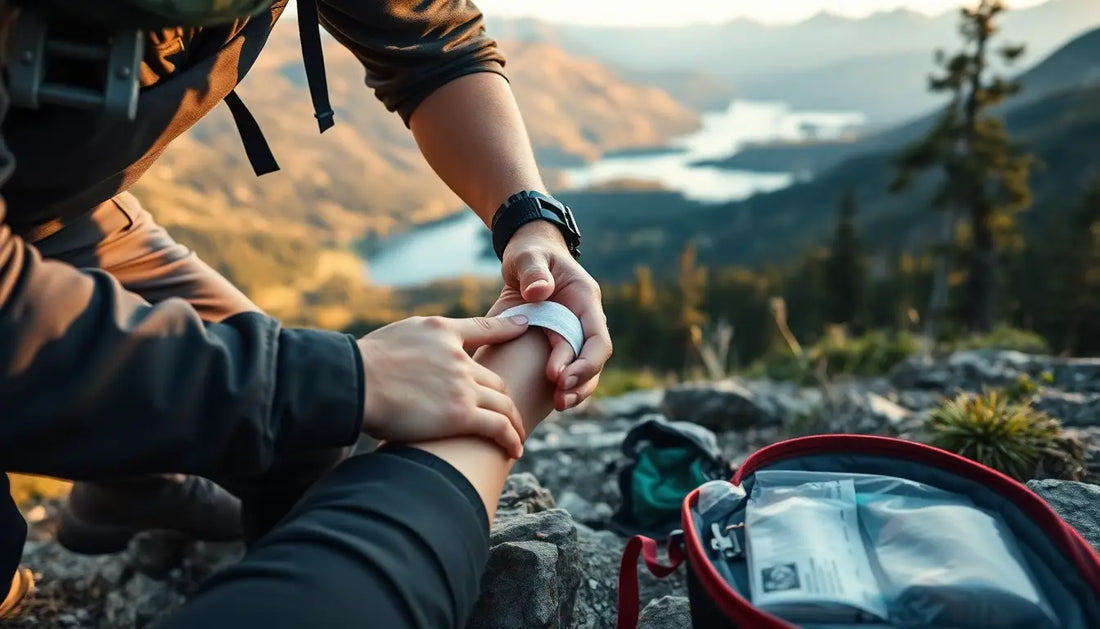
First Aid in the Field: Essential Techniques for Outdoor Emergencies
TF AdventureIn the vast expanse of nature, where the untamed wilderness beckons adventurers and outdoor enthusiasts, the need for comprehensive first aid knowledge becomes paramount. As the founder of TF Adventure, a shop dedicated to providing professional-grade survival and emergency equipment, I've witnessed firsthand the importance of being prepared for the unexpected. In this comprehensive guide, we'll delve into the essential first aid techniques that can make the difference between a successful outdoor excursion and a harrowing ordeal.
Wilderness First Aid Fundamentals
When venturing into the great outdoors, the principles of wilderness first aid differ significantly from those applied in urban settings. The remoteness of the location, limited access to medical resources, and the unique environmental factors all contribute to the unique challenges faced by outdoor first responders. In this section, we'll explore the core tenets of wilderness first aid, equipping you with the knowledge and skills to provide effective care in the field.
Assessing the Situation
The first step in any wilderness first aid scenario is to assess the situation thoroughly. This involves evaluating the scene for potential hazards, ensuring the safety of both the victim and the responder, and gathering crucial information about the incident. By taking a systematic approach, you can quickly identify the nature and severity of the injury or illness, allowing you to prioritize your response accordingly.
Airway, Breathing, and Circulation
The ABCs of first aid – Airway, Breathing, and Circulation – are the foundation of any emergency medical intervention. In the wilderness, maintaining these vital functions can be particularly challenging due to environmental factors and limited resources. We'll explore techniques for establishing and maintaining a clear airway, assessing and supporting breathing, and managing circulatory issues, such as bleeding and shock.
Wound Care and Fracture Management
Outdoor activities often result in a variety of injuries, from lacerations and abrasions to fractures and dislocations. Proper wound care and fracture management are essential to prevent further harm and promote healing. We'll delve into the proper methods for cleaning and dressing wounds, immobilizing fractures, and managing specific types of injuries commonly encountered in the wilderness.
Environmental Emergencies
The great outdoors can present a unique set of environmental challenges, from extreme temperatures to venomous encounters. In this section, we'll address the recognition, prevention, and management of environmental emergencies, such as hypothermia, hyperthermia, snake bites, and allergic reactions. By understanding these conditions and their appropriate treatments, you'll be better equipped to handle a wide range of outdoor emergencies.
Psychological First Aid
While physical injuries may be the most visible, the psychological impact of outdoor emergencies cannot be overlooked. Providing emotional support and psychological first aid can be just as crucial as administering medical care. We'll explore techniques for assessing and addressing the emotional needs of victims, as well as strategies for maintaining your own mental well-being in stressful situations.
Building a Comprehensive First Aid Kit
A well-stocked first aid kit is the foundation of any successful wilderness emergency response. We'll guide you through the essential components of a comprehensive first aid kit, tailored for the unique demands of the outdoors. From bandages and antiseptics to specialized equipment and medications, we'll ensure you're equipped to handle a wide range of medical emergencies.
Conclusion
Venturing into the great outdoors is a thrilling and rewarding experience, but it also comes with inherent risks. By mastering the essential techniques of wilderness first aid, you'll be better prepared to respond to emergencies, provide life-saving care, and ensure the safety and well-being of yourself and your fellow adventurers. Remember, the knowledge and skills you acquire today could one day make all the difference in the field.
